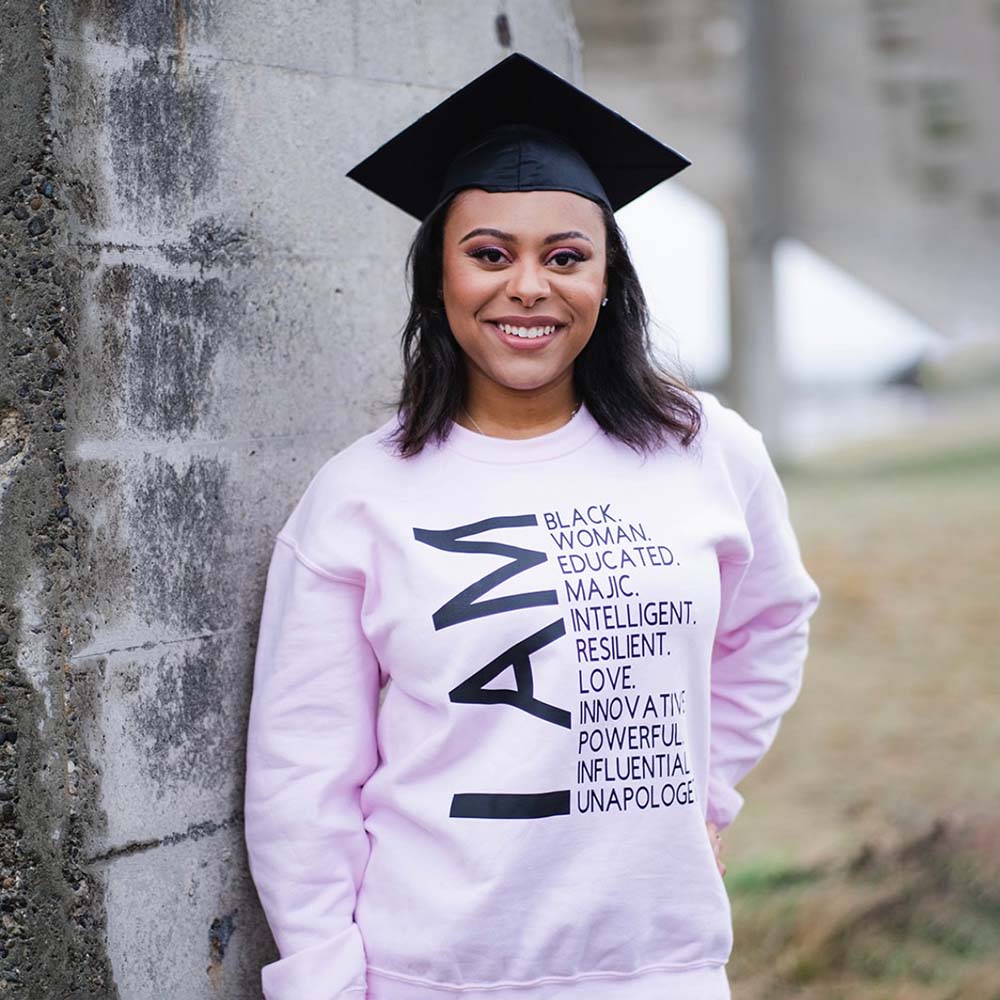Tess Nicole Foy
The children who I work for, from birth to age five, don’t know how to talk to legislators. It’s my job to advocate for them and let legislators know what the children, families and childcare providers in our state need. Many people believe that only kindergarten through 12th grade is important, but early care is vital because it’s a child’s foundation.
Advocating for quality and equitable childhood education
Tess Nicole Foy has worked as a nanny, an infant teacher and an early achiever’s coach at Child Care Resources, a nonprofit dedicated to improving early childhood care in Washington state. As an early achiever’s coach, Tess worked with childcare centers to make sure they provided high-quality and equitable early care and learning opportunities. “We want to make sure every child is off to an equitable start in school and life,” said Tess.
A colleague saw Tess’s passion for early care and child development and introduced her to the online Bachelor of Arts in Early Care & Education at the University of Washington. “The program and career opportunities fit with what I wanted to do and who I am,” said Tess. With the help of the Child Care Aware of Washington (Early Achievers) Scholarship, Tess enrolled in the program in fall of 2019.
Today, the 2021 graduate is a mobilization coordinator for Child Care Resources, advocating at the legislative level for quality and equitable childhood education in Washington state. Here, Tess shares how the online Bachelor of Arts in Early Care & Education prepared her for this exciting new role.
What does a mobilization coordinator do?
The children who I work for, from birth to age five, don’t know how to talk to legislators. It’s my job to advocate for them and let legislators know what the children, families and childcare providers in our state need. Many people believe that only kindergarten through 12th grade is important, but early care is vital because it’s a child’s foundation. I connect childcare providers, early care practitioners, policy and advocacy leads, and our staff and board members with the people who make the bills and policies that directly impact early learning systems.
How did the online Bachelor of Arts in Early Care & Education prepare you for this role?
I knew how to mobilize and energize people, but policy was new to me, and so my class Social Policy in Early Care & Education couldn’t have come at a better time. I was just promoted to this job right when the legislative session started. The class prompted me to learn about policies in early learning and how to create my own policies. I’m so proud of a paper that I wrote in that class about a policy that ensures a quality early learning environment for African American children.
What other classes helped you with your advocacy work?
Exceptional Children taught me how to work with children with disabilities as well as shift my perspective. We make a lot of decisions for children even though they have their own minds and ideas. I realized that it's important to also value children as people and give them some autonomy and choices.
What was surprising about the online Bachelor of Arts in Early Care & Education?
There are so many things you can do with an early care degree. Many people who earn this degree become teachers, but you can also use this degree to work for organizations that help foster children or first-time moms learn about child development.
What were the instructors like?
My professors intentionally took the time to connect and build relationships with me. Miriam Packard would go out of her way to ask, “What do you need? How can I help you?” My adviser Jenni Campbell was also very responsive to all my questions and also built a close relationship with me.
What was the online learning experience like for you?
I appreciated the fact that this program was fully online. Online learning was honestly a lot easier for me to handle because it gave me the ability to carry out my work, school life and personal life.
What would you say to someone interested in the program?
This is the program for students who recognize the importance of racial equity and seek to be culturally responsive educators. Many courses in this program preach racial equity and the belief that every child should receive equitable resources and support from the very start.
